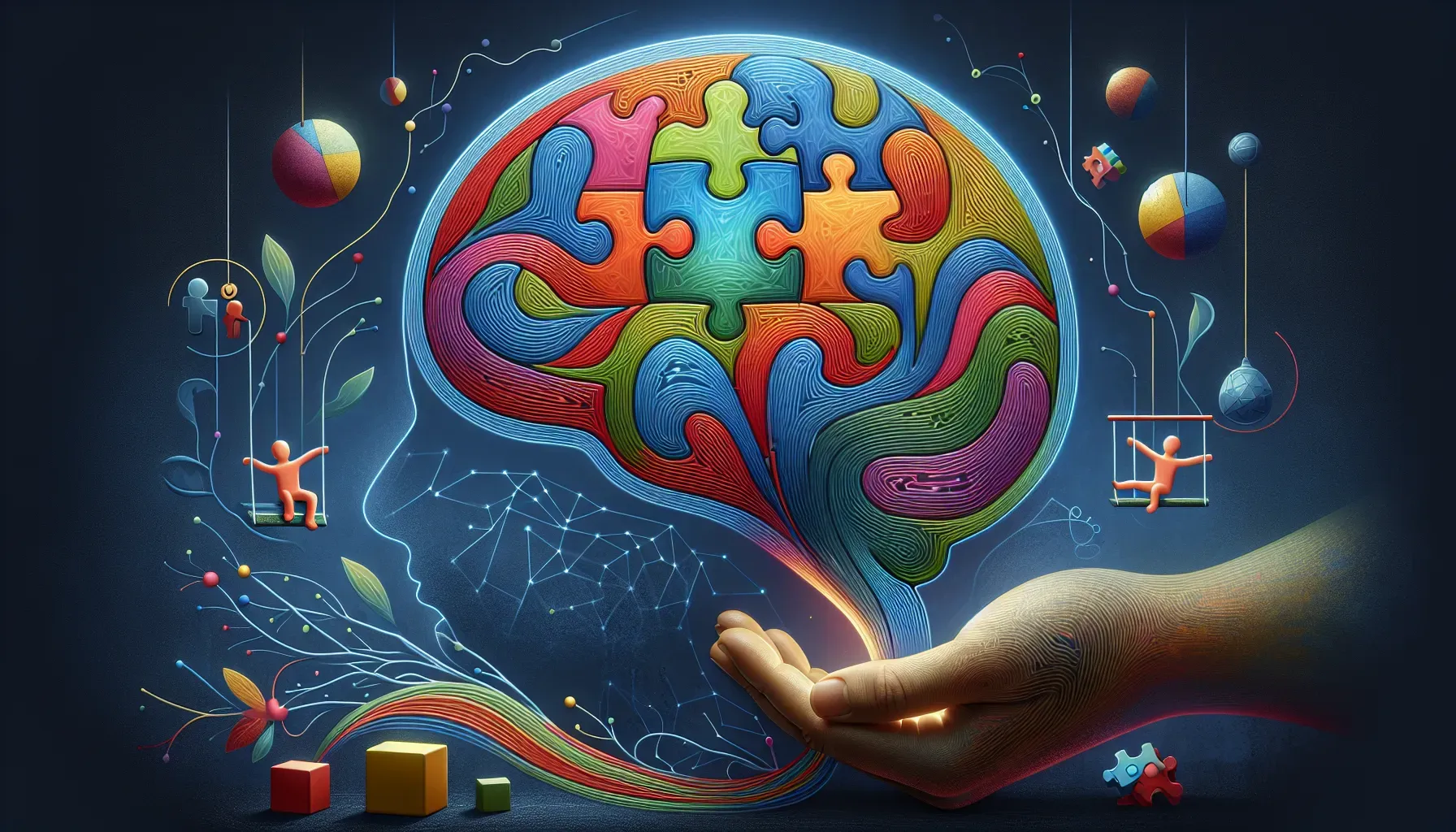Unlocking Autistic Potential: Advances in Cognitive Development Therapies

Cognitive-Behavioral Innovations in Autism Therapy
The landscape of autism therapy is undergoing a remarkable transformation, powered by research advancements and technological innovations. At the HorizonsMind Blog, we understand the essence of these evolving strategies that aim at unlocking the incredible potential within autistic children. This article explores the breakthroughs and future-focused approaches that are redefining cognitive development therapies in the field of autism.
Traditional cognitive-behavioral therapies (CBT) have been retooled to offer more personalized and impactful support for autistic children. Groundbreaking methods now leverage data analytics to tailor therapeutic interventions to individual needs, enhancing outcomes and accelerating progress. By incorporating AI-driven insights into therapy sessions, practitioners can more effectively target and modify behaviors that lead to significant improvements in social communication and emotional regulation.
How personalized therapies improve outcomes
Neurofeedback is a non-invasive approach that teaches self-regulation of brain function. Pioneering studies indicate substantial promise in utilizing neurofeedback to capitalize on the innate plasticity of the brain in individuals with autism. This technique involves monitoring brain waves and providing real-time feedback to help adjust neural activities. The focus on enhancing specific areas of brain function related to attention, decision making, and social responsiveness paves the way for a new era of customized neural therapy for autistic children.
Related Article: Unveiling the Spectrum of Therapies: A Newcomers Guide to Supporting Autistic Children
Neurofeedback Techniques for Autistic Growth
A one-size-fits-all model does not suit intervention strategies for autism, and hence the rise of customizable cognitive exercises. These bespoke programs are designed to align with each child's distinctive abilities and challenges, ensuring maximum engagement and impact. Through digital platforms and gamification, HorizonsMind Blog recognizes that deploying adaptive learning algorithms can provide a dynamic gauntlet for cognitive skills tailored specifically for each stage of an autistic child’s development.
Understanding brain plasticity and its benefits
In the quest to quantify therapeutic success, new metrics have emerged for assessing cognitive development in autistic children. Sophisticated tools that track eye movements, attention span, and response times offer unprecedented insights into how these children process information. This granular data accrues into valuable indices that not only gauge progress but also refine intervention strategies in real-time.
No therapy can succeed without involving parents and caregivers, whose roles have been magnified by recent modalities in cognitive therapy interventions. Empowering families with resources and training enables them to reinforce therapeutic objectives within daily routines at home. They act as co-therapists a crucial extension to formal sessions that substantially enhances learning consistency and longevity.
Customizable Cognitive Exercises for Unique Strengths
Play is a natural medium through which children explore and make sense of the world. Integrating play-based therapy has shown remarkable efficiency in improving cognitive functions among autistic children. Such immersive experiences foster learning in a stress-free environment, promoting creativity, problem-solving skills, and adaptability through enjoyable yet structured activities.
The role of gamification in therapy engagement
HorizonsMind Blog recognizes the value of multidisciplinary approaches when it comes to cognitive advancement in autism therapies. Collaborative efforts among psychologists, speech therapists, occupational therapists, educators, and other specialists offer comprehensive care tailored to individual needs. This symbiotic approach harnesses collective expertise to create an all-encompassing developmental scaffold for autistic children.
Measuring Progress in Cognitive Development
Staying abreast with empirical research is foundational for continued advancement in autism therapies. Recent updates on neurocognition in ASD bring promising prospects of earlier diagnosis and intervention thanks to biomarkers identification. Such strides inevitably contribute to refining therapeutic measures, optimizing them for improved cognitive function in autistic children into adolescence and adulthood.
Frequently Asked Questions
Neurofeedback offers a non-invasive way to help autistic children self-regulate their brain function. By monitoring brain waves and providing real-time feedback, this technique enhances areas like attention and social responsiveness, leveraging the brain's natural plasticity for improved cognitive growth and development.
Customizable cognitive exercises are tailored to fit each child's unique strengths and challenges, ensuring maximum engagement. These bespoke programs utilize digital platforms and gamification to adapt learning experiences, promoting effective cognitive skill development that aligns with the individual needs of autistic children.
Parents and caregivers play a pivotal role in cognitive therapy interventions by reinforcing therapeutic goals within daily routines. Their involvement enhances learning consistency and longevity, making them essential co-therapists who support their child's development alongside formal therapy sessions.
Check Out These Related Articles

Harmonizing Paints and Potions: Exploring the Interplay of Art and Therapeutic Science for Autistic Children

Enhancing Communication Strategies: Overcoming Barriers in Autistic Children's Speech and Language Development

Steering the Course of Future Therapies: Ethical Considerations in New Autism Treatment Methods
